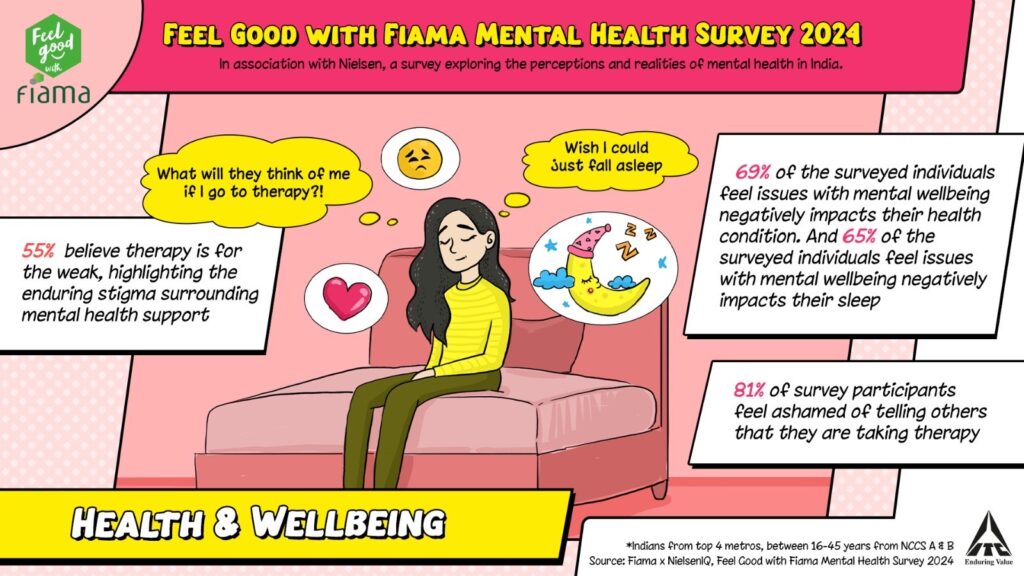In India, about 1 in 10 adults have a thyroid disorder, and around 1 in 11 adults live with diabetes.[1] But what many people don’t know is how often these two conditions are connected. In fact, approximately 1 in 4 people with Type 2 diabetes also have hypothyroidism,[2] a condition where the thyroid gland is underactive. This overlap is not coincidental as both conditions affect how the body uses energy.[3]
Understanding the linkage between thyroid & diabetes
The thyroid is a butterfly-shaped gland located at the base of the neck, just below the Adam’s apple. It regulates the body’s metabolism, which affects how the body uses and stores energy. Thyroid hormones and insulin are like the body’s energy managers. Thyroid hormones help control how fast your body uses energy, while insulin helps manage your blood sugar levels. Together, they play a big role in keeping your metabolism running smoothly. So, when the thyroid function is disrupted, it can affect blood sugar control, and vice versa.[4]
[1] Unnikrishnan AG, Menon UV. Thyroid disorders in India: An epidemiological perspective. Indian J Endocrinol Metab. 2011 Jul;15(Suppl 2):S78-81.
[2] Ref: Talwalkar P, Deshmukh V, Bhole M. Prevalence of hypothyroidism in patients with type 2 diabetes mellitus and hypertension in India: a cross-sectional observational study. Diabetes Metab Syndr Obes. 2019 Mar 20;12:369-376
[3] Hussein SM. et al. The Relationship Between Type 2 Diabetes Mellitus and Related Thyroid Diseases. Cureus. 2021 Dec 25;13(12):e20697.
[4] Hage, Mirella et al. “Thyroid disorders and diabetes mellitus.” Journal of thyroid research vol. 2011 (2011): 439463. doi:10.4061/2011/439463

Dr Rohita Shetty, Medical Affairs Head, Abbott India said, “People living with diabetes are usually aware of their blood sugar levels and know how to manage the fluctuations. But many symptoms of thyroid disorders might go unnoticed, even though they can impact blood sugar levels.[5] Thyroid health and blood sugar levels are more linked than you might think. That’s why it’s important to get regular thyroid check-ups. With the right care, thyroid disorders can be managed effectively, allowing people to live healthy and active lives.”
[5] Bajaj, Sarita. Thyrovigilance for hypothyroidism in India. Thyroid Research and Practice 19(1):p 1-7, Jan–Apr 2022

Dr. PG Sundararaman, Endocrinologist, Billroth Hospital, Chennai, “Thyroid conditions are often neglected, with a large percentage of the population living with undetected issues and, as a result, not seeking the necessary care. Many people with diabetes may have thyroid problems without noticeable symptoms, which can range from fatigue, memory lapses, sleeping difficulties and excessive weight gain to constipation, dry skin, cold intolerance, muscle cramps, and puffy eyelids. [6] An underactive thyroid can also result in fluctuations in energy levels, weight, mood, and heart rate, as the gland plays an important role in regulating these functions and supporting the body’s healthy development. This is why regular check-ups for thyroid function are important, especially for people with type 2 diabetes.”
[6] https://www.medicalnewstoday.com/articles/163729.php

Research shows that diabetes combined with thyroid disorders can increase the risk of kidney issues, poor heart function, and issues with blood circulation.[7],[8] These can lead to complications
[7] Mohamedali M, Reddy Maddika S, Vyas A, Iyer V, Cheriyath P. Thyroid disorders and chronic kidney disease. Int J Nephrol. 2014;2014:520281. doi: 10.1155/2014/520281. Epub 2014 Apr 13. PMID: 24829799; PMCID: PMC4009121.
[8] Klein, Irwin, and Sara Danzi. “Thyroid disease and the heart.” Circulation 116, no. 15 (2007): 1725-1735.